Palladium Chloride
Aliases: palladium dichloride, palladium chloride
Cas No: 7647-10-1
Molecular formula: PdCl2
Molecular weight: 177.33
Appearance: reddish brown crystalline powder
Application scope:
Analytical reagent; Used as catalyst for ethylene to acetaldehyde and other palladium catalysts; To manufacture molecular sieve and prepare surfactant for non-conductor material coating; For the manufacture of gas sensitive components.
Palladium chloride, also known as the palladium chloride, and palladium chloride, anhydrous chloride, molecular formula: PdCl2, molecular weight: 177.33 Cas No: 7647-10-1, appearance: reddish-brown crystalline powder, melting point: 678-680°C (lit), density: 4 g/mL at 25°C (lit), stability: stable. Banned compounds: strong oxidants. It is deliquious, soluble in dilute hydrochloric acid, stable in air, soluble in water, ethanol, acetone and hydrobromic acid. Used for preparing special catalysts and molecular sieves; 600 ° C sublimation decomposition; The dihydrate is a dark red hygroscopic crystal. Can be used to prepare non-conductor material coating; Make gas sensor, analytical reagent, etc. Structure: PdCl2 and PdCl2 are two types, PdCl2 is a flat chain structure, PdCl2 is Pd6Cl12 as the structural unit. In the two kinds of Pd (Ⅱ) has a square coordination characteristics. Chemical applications: determination of palladium, mercury, thallium and iodine, purification of rare gases, palladium chloride test paper for carbon monoxide, cobalt detection; Used for synthesizing semiconductor metal-containing polymers with a polypyrrole skeleton that conforms to the minimum energy and is close to the plane. 1. Oxidation catalysis for the generation of methyl ketone from terminal olefines (-olefines). 2. Through Wacker reaction, the alkenes are oxidized into aldehydes by using air as oxidant in the aqueous solution. 3. Used for the detection of CO(palladium chloride test paper impregnated with phosphomolybdic acid solution immediately turns blue when it encounters trace CO), CO+PdCl2+H2O=CO2+Pd +2HCl, upstream raw material: palladium, sponge palladium, downstream product: salbutamol sulfate, supported noble metal catalyst, palladium catalyst. Daily use: 1. Used as analytical reagent; 2. 2. It is mainly used as a catalyst for ethylene to acetaldehyde and other palladium catalysts. Molecular sieve manufacturing, preparation of non - conductor materials for the surface activator coating. For the manufacture of gas sensitive components.
P&C parameters:
|
Palladium content |
60.0% |
|
Appearance |
Russet crystalline powder |
|
Molecular formula |
PdCl2 |
|
The molecular weight |
177.33 |
|
The density of |
4 g/mL at 25 °C(lit.) |
|
Melting point |
678-680 °C |
|
CAS no. |
7647-10-1 |





















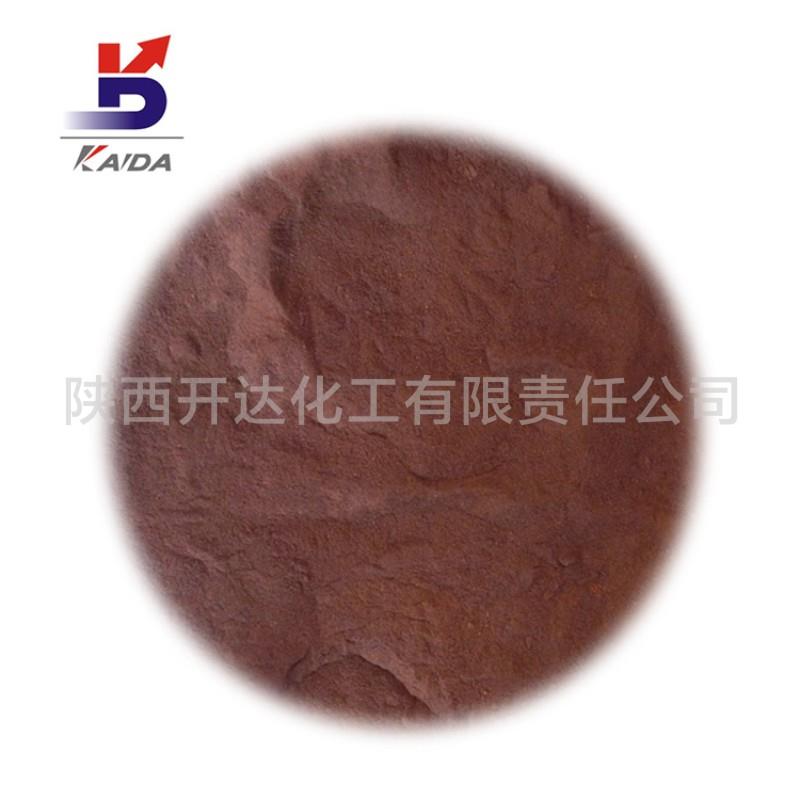
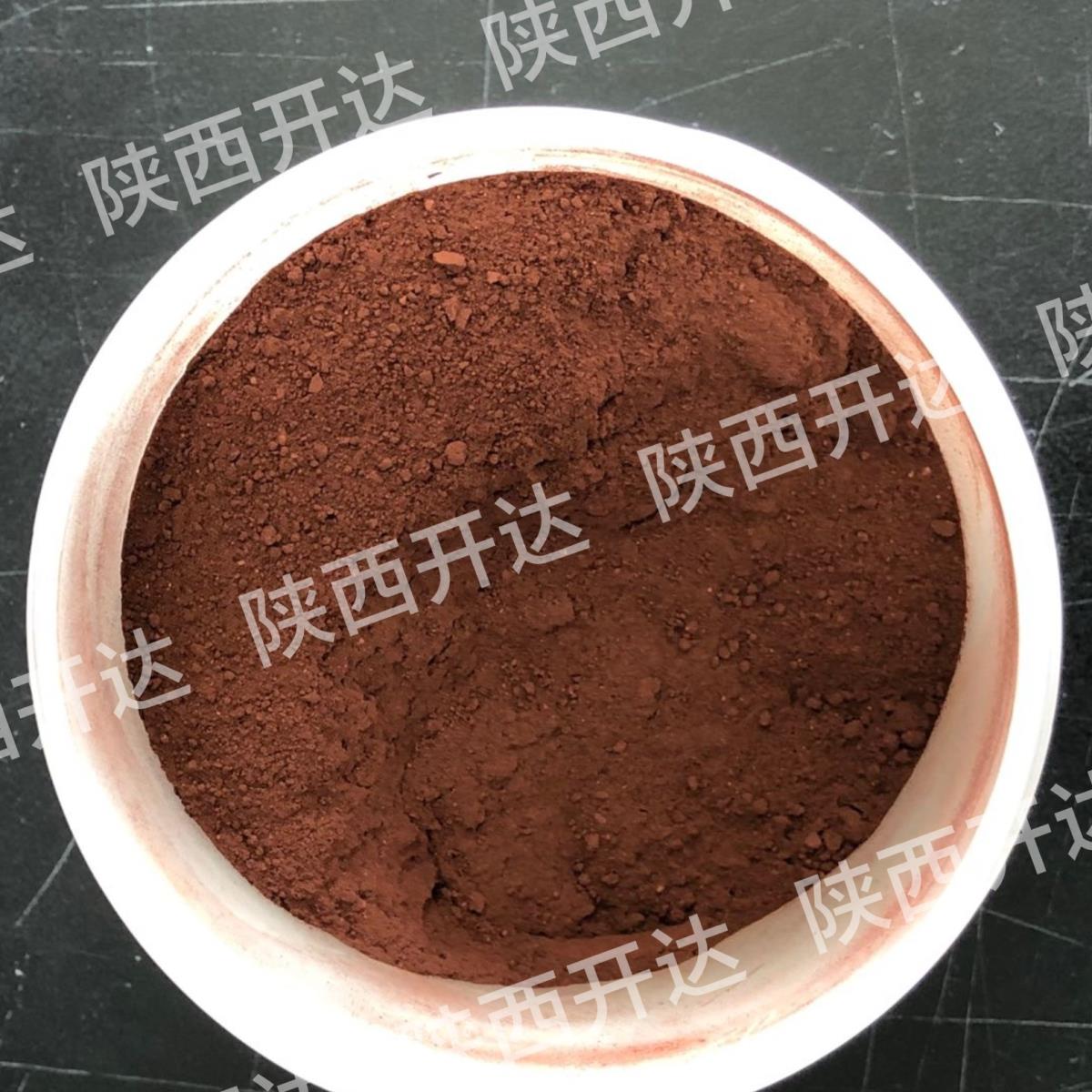
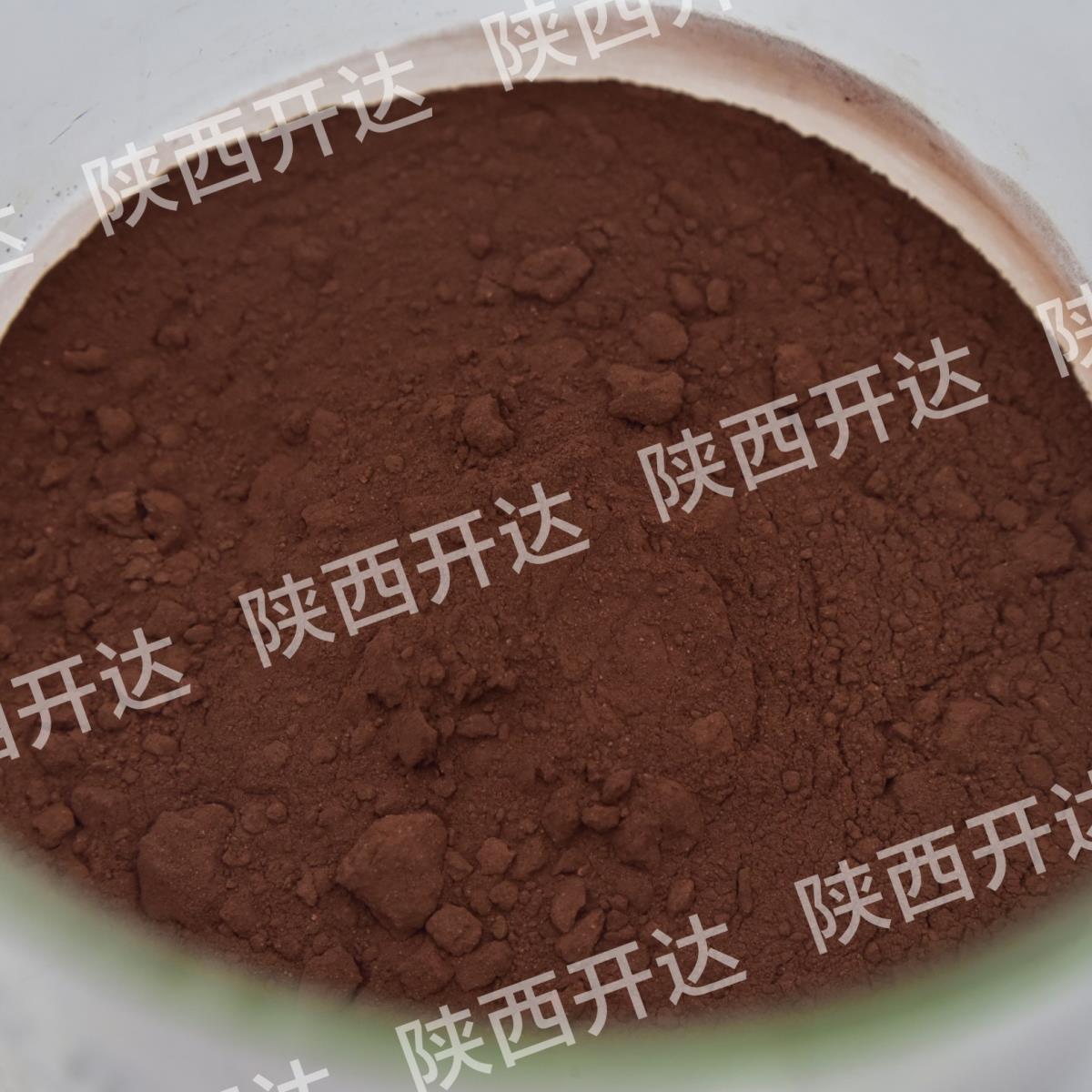
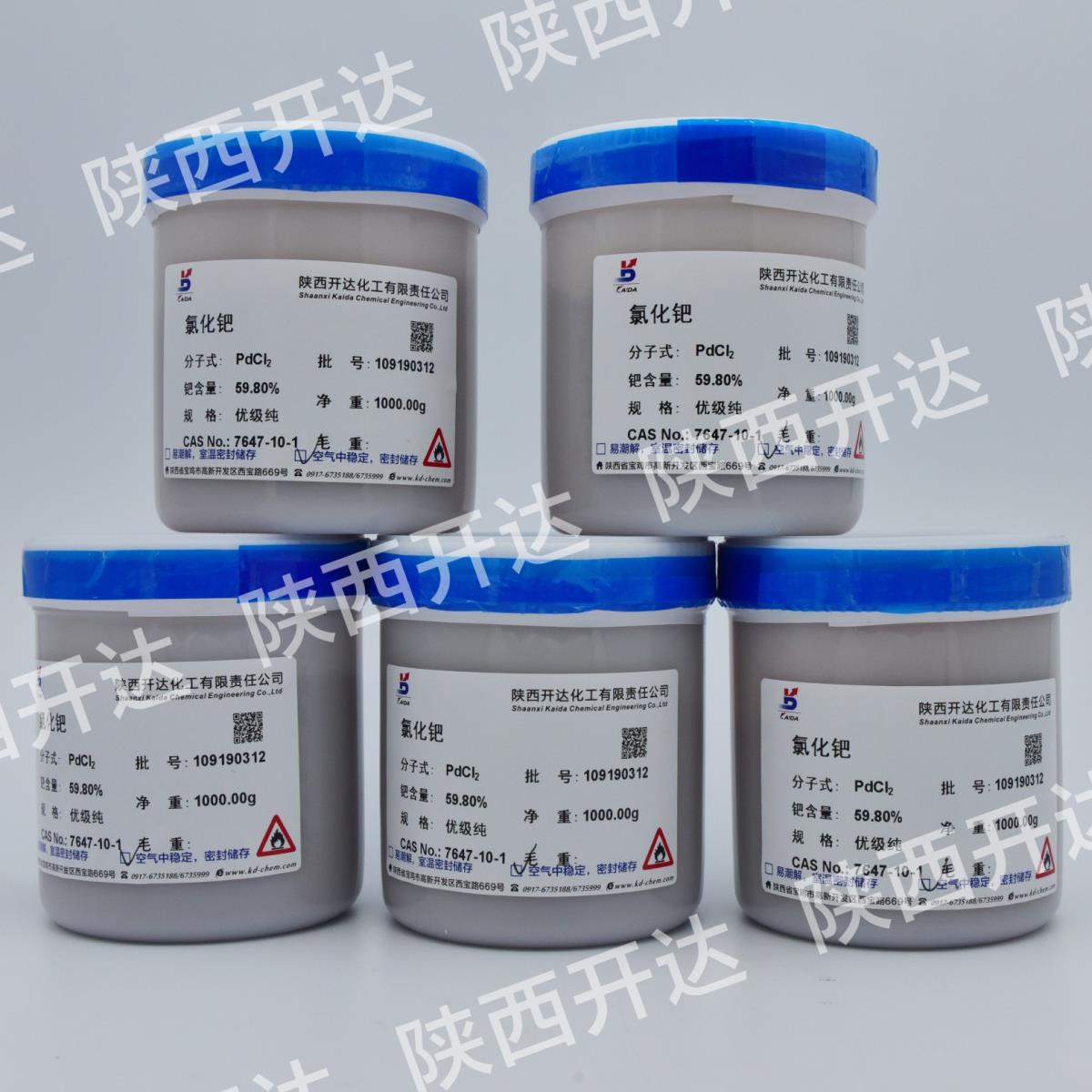
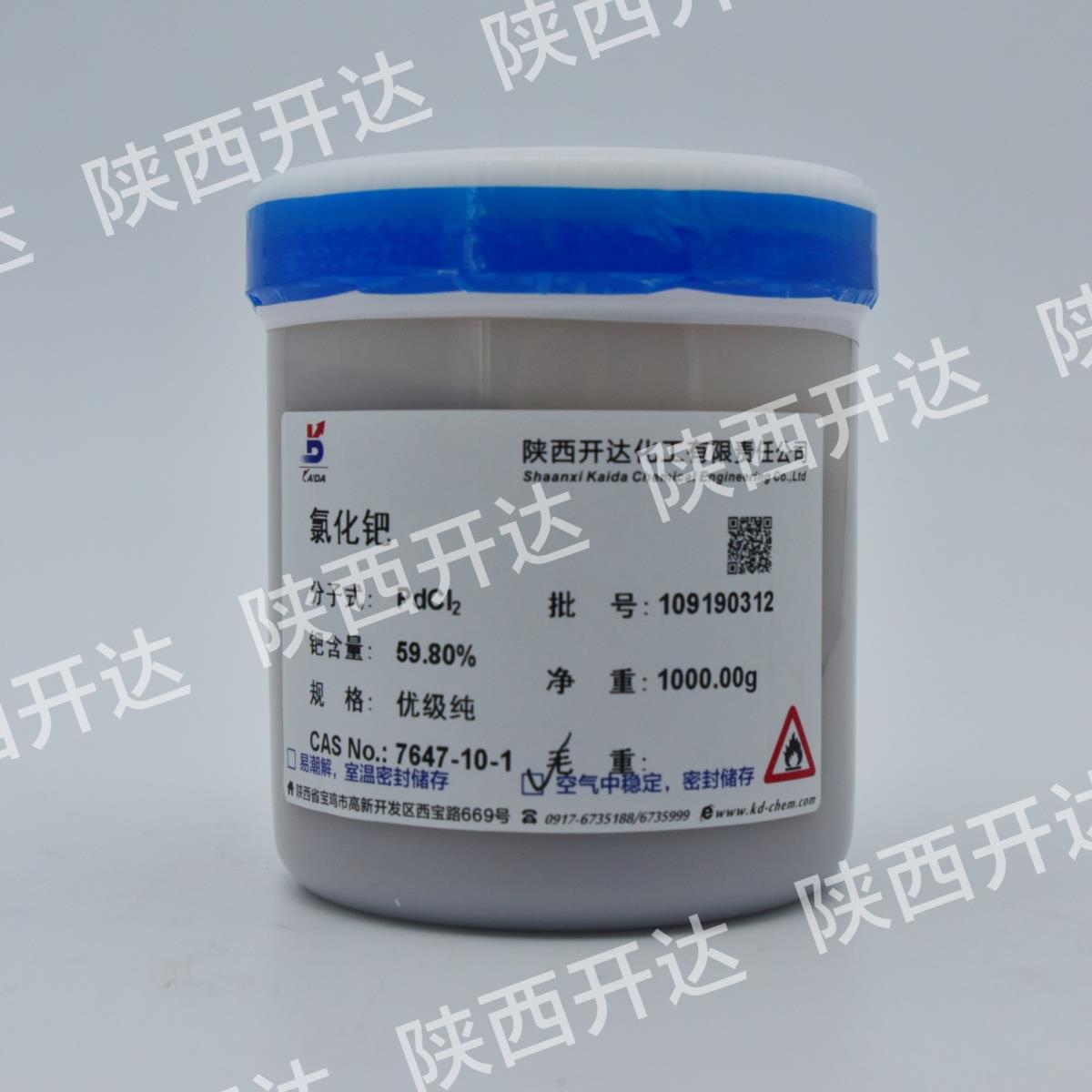
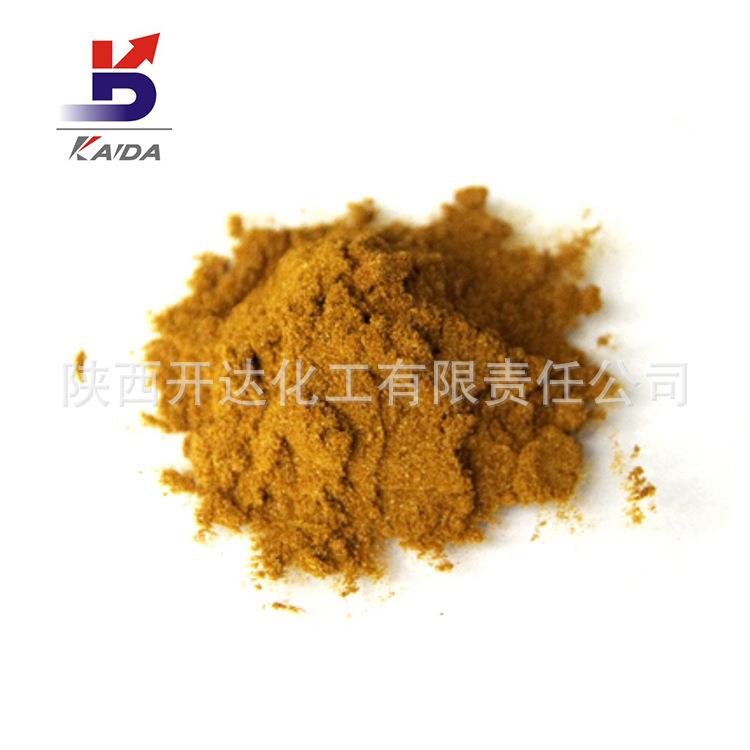
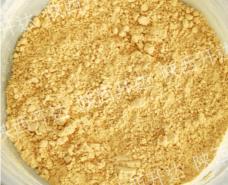
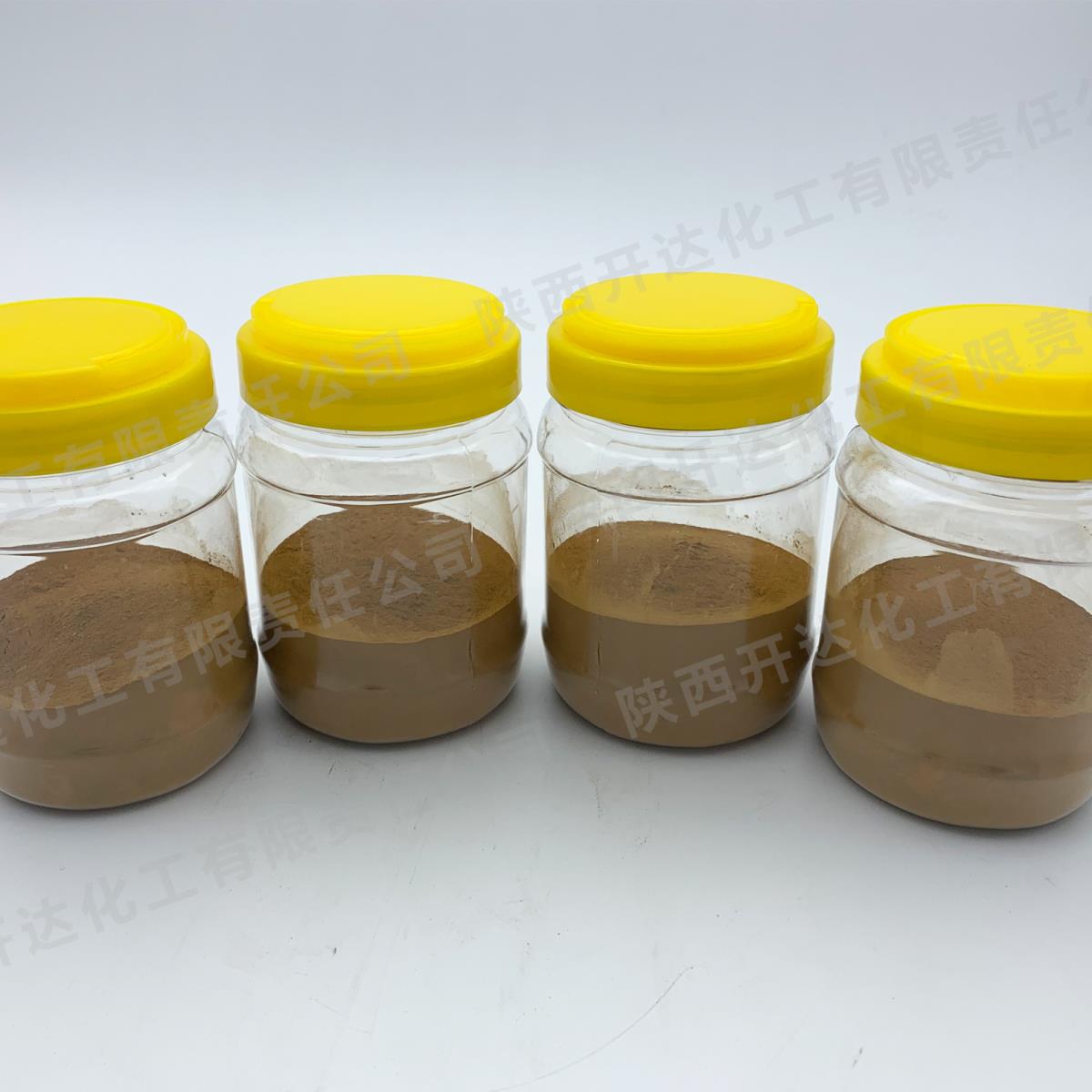
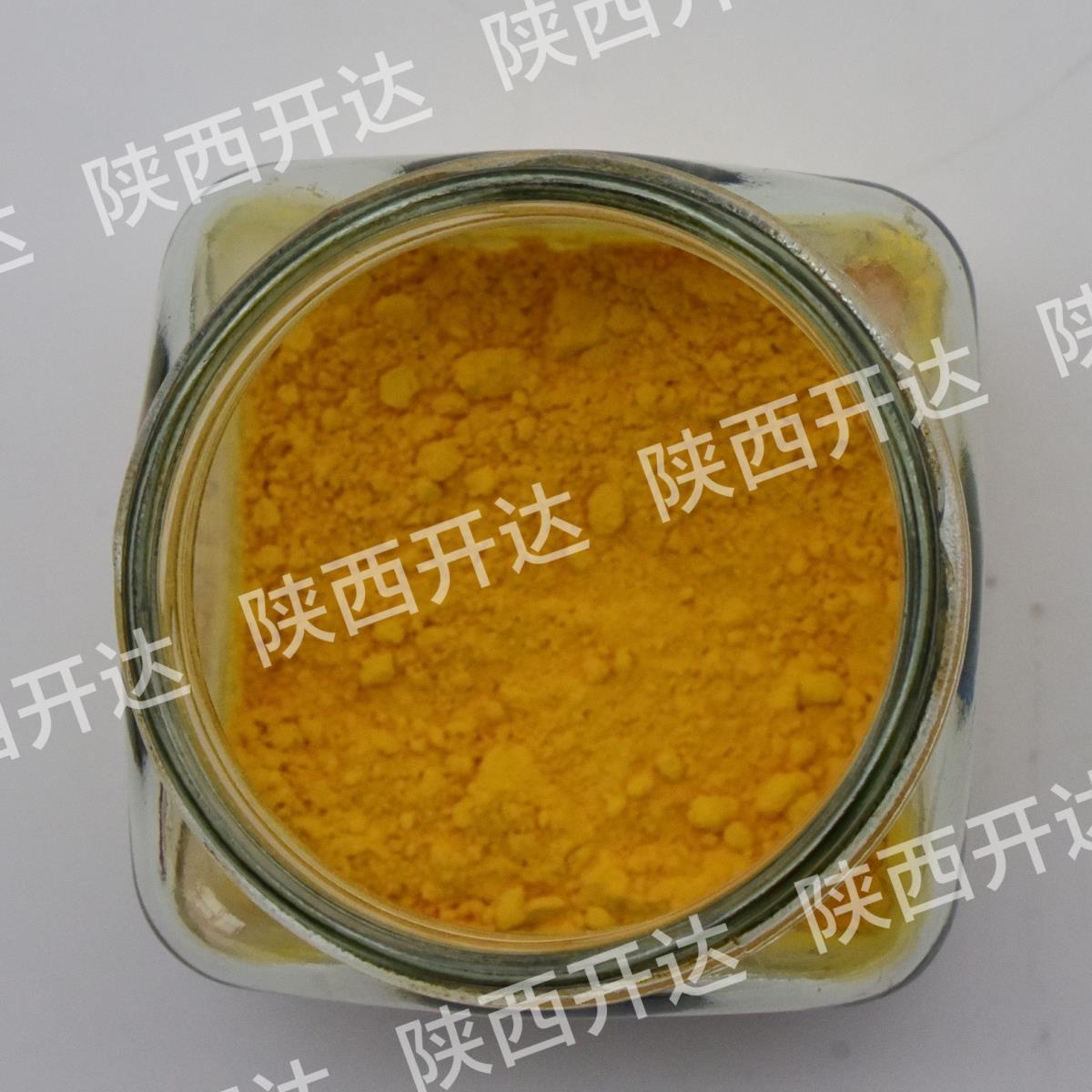
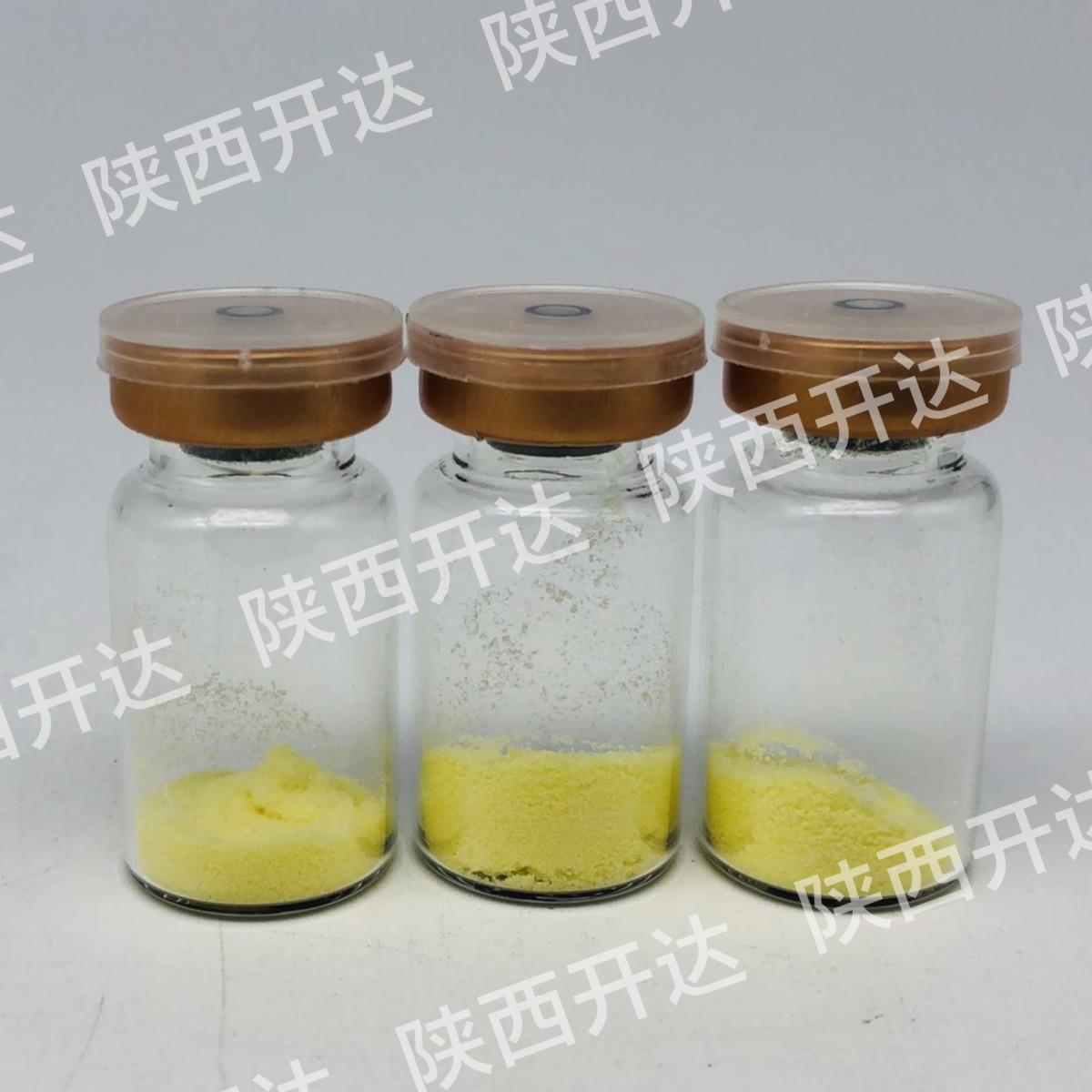
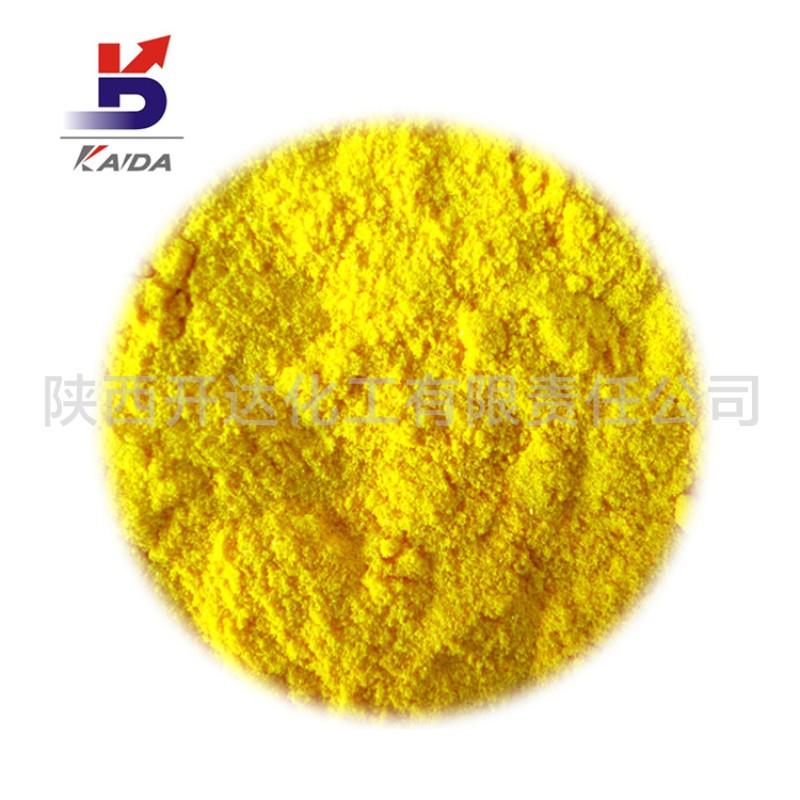
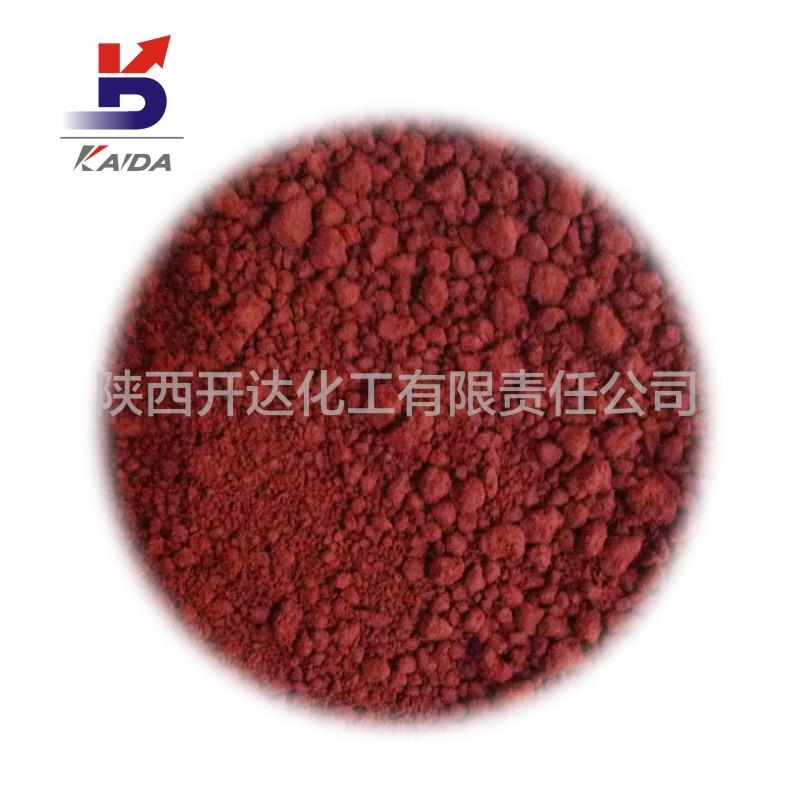
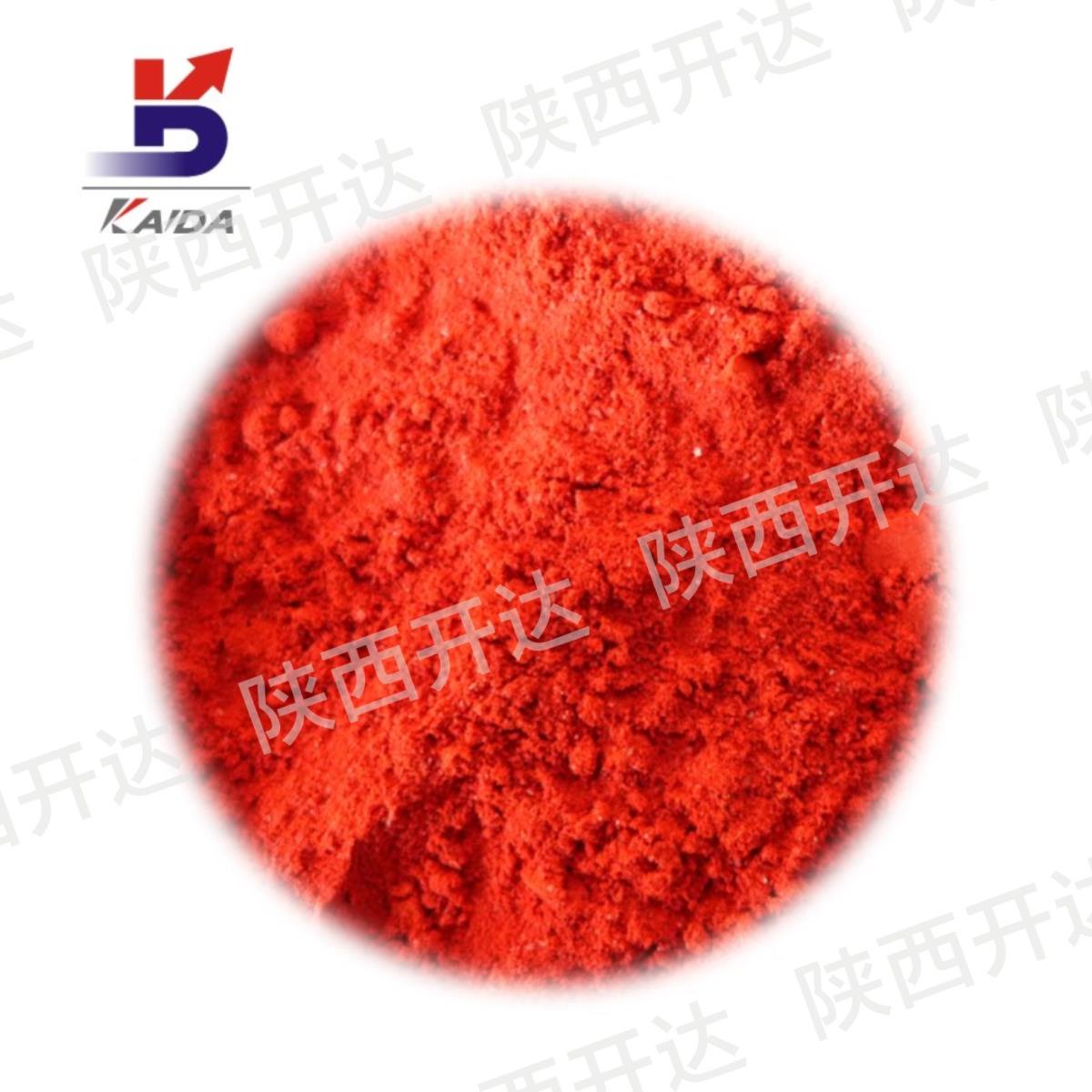
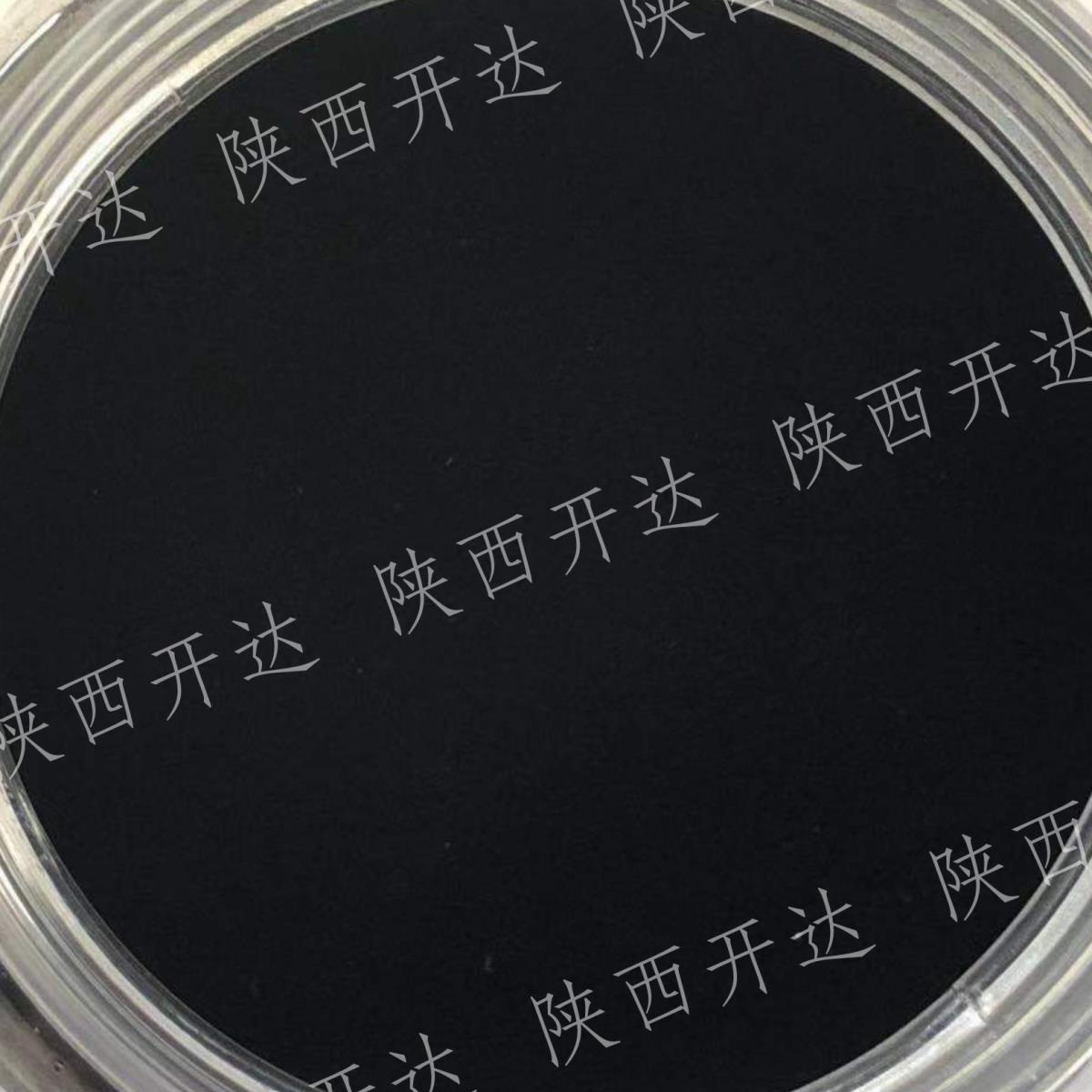
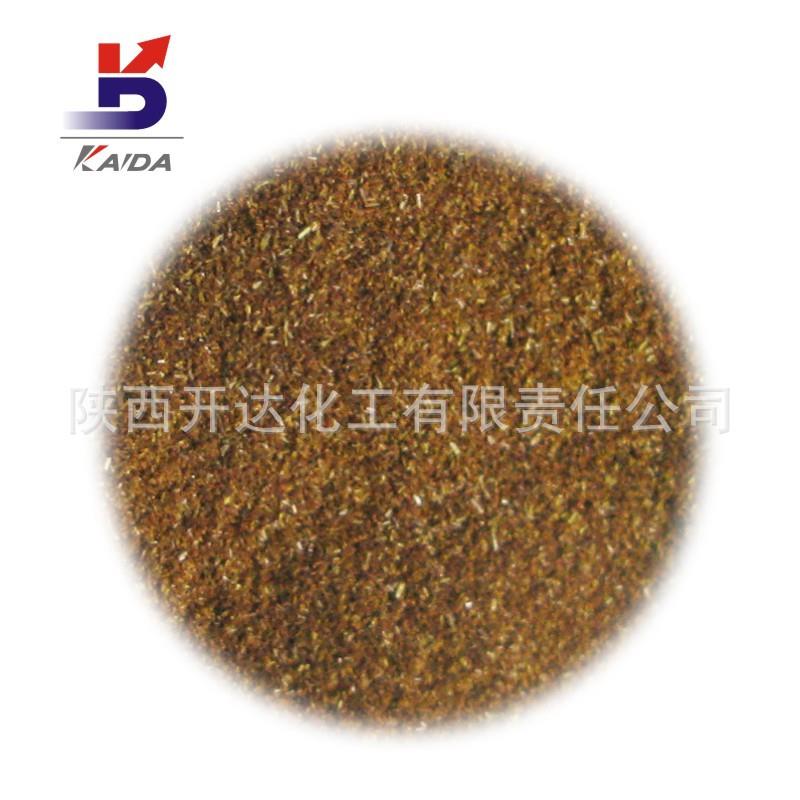


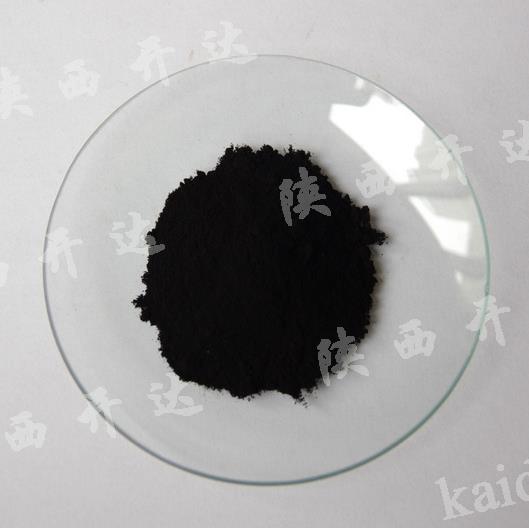
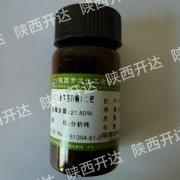
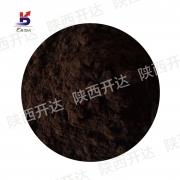

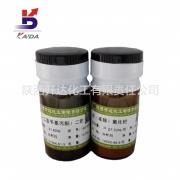
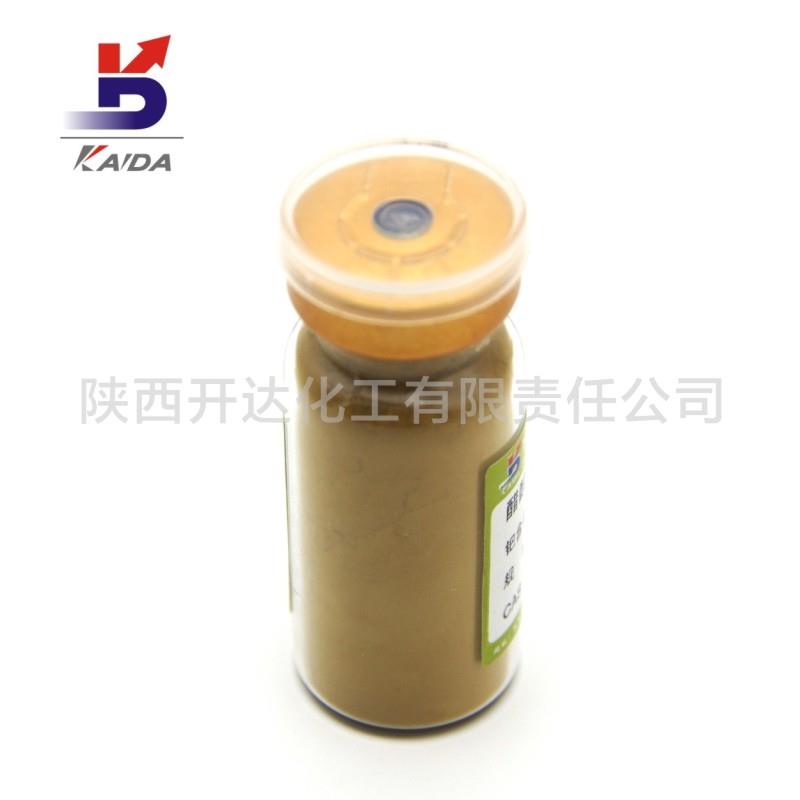
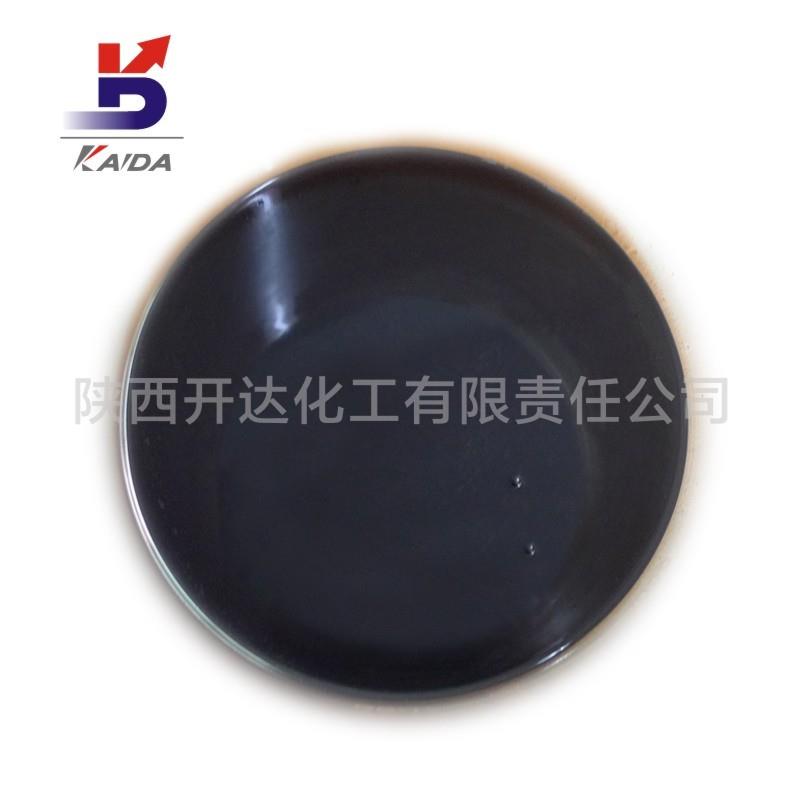
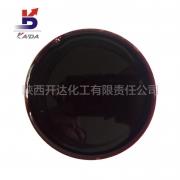


 陕公网安备 61030502000254号
陕公网安备 61030502000254号